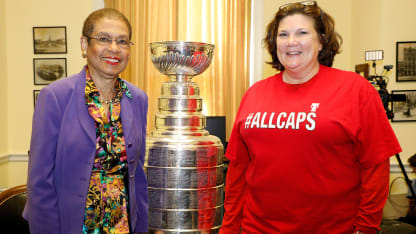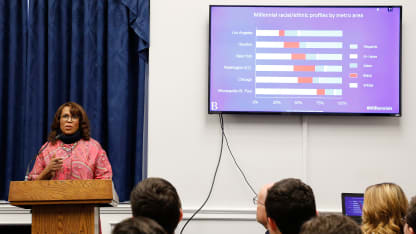Neal Henderson, who in 1987 founded the Fort Dupont Hockey Club, now the oldest minority ice hockey program in North America, understands well the importance of getting minorities involved in the sport, so he appreciated hearing Davis' and Frey's presentation.
"What we need is more adults to be involved," Henderson said. "A child is a sponge. The adult is an aisle leading this child into the avenue of entertainment, and if a lot of adults don't lead these children, they go astray."
That's one of the reasons Davis and Frey stressed the importance of millennials (ages 18 to 34). Forty four percent of American millennials, which represent one quarter of the total U.S. population of 75 million, are minorities, making them the most diverse generation in the country's history.
Getting them involved as fans and parents of potential youth players will help grow the sport and end the misconception that hockey isn't a sport for everyone.
In their brief, Davis and Frey pointed to Toronto Maple Leafs center Auston Matthews, a Mexican-American who grew up in Arizona and was the No. 1 in the 2016 NHL Draft, and Nashville Predators defenseman P.K. Subban, a Toronto native of Jamaican descent who won the Norris Trophy in 2013 as the League's best defenseman, as examples of NHL players from diverse backgrounds making an impact.
"Those sports -- and the NHL may be on the front lines of this -- that are able to capture that change and reach out to that change in America will do more to make people understand the value of hockey, helping young people become more active not only if they're going to be fans of professional hockey, but playing hockey in their own playground," Frey said.



